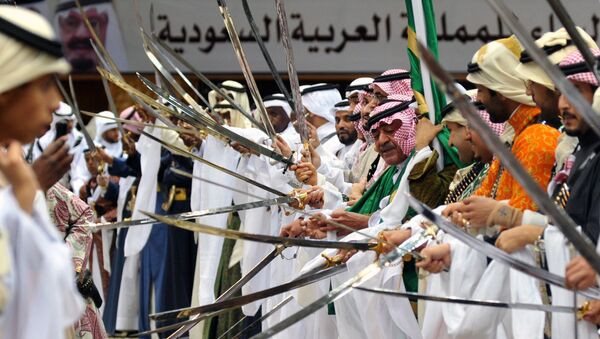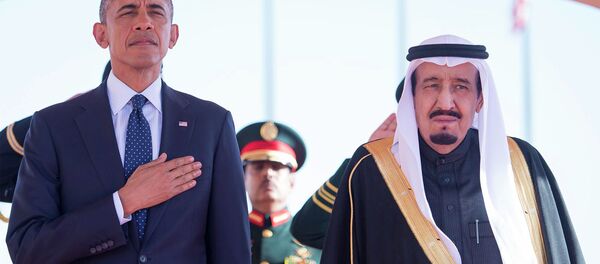Miles and Blankenship call attention to the fact that Riyadh has adopted a more active foreign policy: the kingdom unleashed a war against Shiite Houthis in Yemen, announced the creation of a new coalition against Daesh (Islamic State/ISIL) and ignited serious tensions with Iran by beheading Saudi Shiite cleric Nimr al-Nimr.
However, "Saudi Arabia's increasingly assertive posture has already resulted in behavior that arguably runs counter to US preferences. Saudi Arabia has prioritized quashing Shiite Houthi rebels in Yemen over fighting the Islamic State [Daesh] and is openly ambivalent about the nuclear deal with Iran. Behavior that inflames tensions promises to deepen regional conflicts, not resolve them," the scholars emphasize.
The Saudi leadership, however, has turned a blind eye to Washington's displeasure, and has openly criticized the Obama administration's approach to the Syrian crisis, Iran's nuclear deal and the White House's Middle Eastern policy in general.
At the same time Riyadh's international image has deteriorated.
A year has passed since King Salman ascended the throne. Although the monarch pledged to bring peace and stability to the region, something quite the opposite has happened, Naser Schruf of Deutsche Welle remarks in his latest Op-Ed.
"For nearly nine months, Saudi Arabia has been waging a war in Yemen, where destitution and the number of civilian victims are growing. The entire region is becoming increasingly unstable. International human rights organizations accuse the kingdom of serious human rights violations and of using prohibited weapons," Schuf continues.
#Saudi-led coalition dropped banned US manufactured cluster munitions in #Yemen. https://t.co/qrVUavgHpy pic.twitter.com/JxRxhjFhMN
— AmnestyInternational (@amnesty) 22 января 2016
"Opposition groups backed by Saudis are powerless, internally at odds, and accused of being pro-terrorist," Schruf stressed, adding that Saudi Arabia's international image has never been as bad as now.
Not everything in the garden is rosy for the Saudi economy as well: the country is facing serious domestic problems and social tensions triggered by plummeting oil prices and following austerity measures.
By executing Shiite cleric Nimr al-Nimr Riyadh added insult to injury: it ruined relations with Iran and aggravated sectarian tensions within Saudi Arabia.
However, Washington did not rush to back its Gulf ally, demonstrating that it is unhappy with Riyadh as much as with Tehran.
"Washington faces trade-offs when it comes to choosing where to step back and let others step forward. Less dependence on Washington is in many ways exactly the point, but it comes at a cost," Miles and Blankenship remark.
While acting on its own, Riyadh should calculate the consequences of its actions and take responsibility for political stability in the region.
The Gulf kingdom should take steps toward mending the situation before it is too late.
According to Schruf, "Salman must swiftly find a way out of Yemen and realign Saudi Arabia's relations with other key countries in the region, such as Iraq, Syria and Iran."





